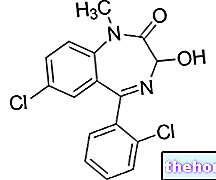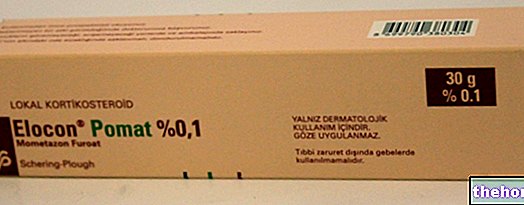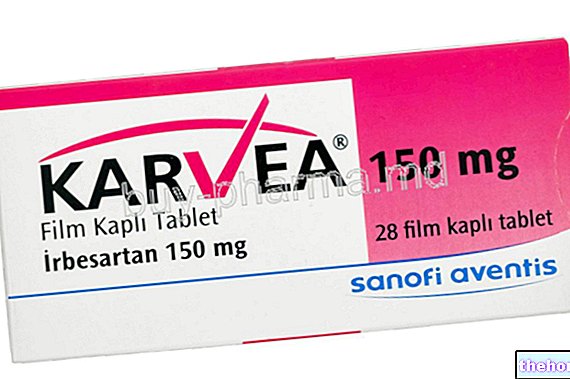
What is Abilify?
Abilify is a medicine that contains the active substance aripiprazole. It is available as tablets (blue rectangular: 5 mg; pink rectangular: 10 mg; yellow round: 15 mg; pink round: 30 mg), orodispersible round tablets (melting in the mouth; pink : 10 and 30 mg; yellow: 15 mg), in oral solution (1 mg / ml) and in solution for injection (7.5 mg / ml).
What is Abilify used for?
Abilify is indicated in patients with the following mental illnesses:
- schizophrenia, mental illness characterized by a range of symptoms, including thought and speech disturbances, hallucinations (hearing or seeing things that are not there), suspiciousness and delusions (misconceptions). Abilify is used to treat patients aged 15 years or older;
- bipolar I disorder, a mental condition in which patients go through manic episodes (periods of abnormal euphoria) alternating with periods of normal mood. Episodes of depression may also occur. Abilify is used to treat moderate to severe manic episodes and to prevent manic episodes in patients who have responded to the medicine in the past. Abilify is used in adults (aged 18 years and over).
The solution for injection is used for the rapid control of agitated or disturbed behavior in adults, where oral dose is not recommended.
The medicine can only be obtained with a prescription.
How is Abilify used?
For schizophrenia, the recommended starting dose is 10 or 15 mg per day orally in adults, followed by a maintenance dose of 15 mg once per day. In patients aged 15 to 17 years, the starting dose is 2 mg per day, and it is gradually increased to the recommended dose of 10 mg once a day. For bipolar disorder, the recommended starting dose is 15 mg once daily by mouth, taken alone or in combination with other medicines. To prevent manic episodes, the same dose should be maintained. For both diseases, some patients may benefit from a higher dose.
The oral solution or orodispersible tablets can be used in patients with difficulty swallowing tablets. The orodispersible tablets are taken by placing them on the tongue,
where they dissolve quickly in contact with saliva, or diluted in water before intake. The solution for injection is intended for short-term use in adults only and should be replaced with tablets, orodispersible tablets or oral solution as soon as possible: the usual dose is 9.75 mg in a single injection into the shoulder muscle or buttock, but effective doses range from 5.25 mg to 15 mg. A second injection can be given starting two hours after the first, if needed, up to a recommended maximum of three injections over a 24 hour period.
The medicine can be given with or without food. The daily dose should not exceed 30 mg. The dose of Abilify should be adjusted if patients are taking other medicines which are metabolized in a similar way. For more information, see the package leaflet.
How does Abilify work?
The active substance in Abilify, aripiprazole, is an antipsychotic medicine. Although the precise mechanism of action is not known, it is thought that this substance binds to a series of receptors present on the surface of nerve cells in the brain. This interrupts the signals transmitted between brain cells by "neurotransmitters", ie chemicals that allow nerve cells to communicate with each other. Aripiprazole is thought to act primarily as a 'partial agonist' for dopamine and 5-hydroxytryptamine (also known as serotonin) neurotransmitter receptors. This means that aripiprazole acts like dopamine and 5-hydroxytryptamine by activating these receptors, but less strongly than neurotransmitters. Since 5-hydroxytryptamine and dopamine are implicated in schizophrenia and bipolar disorder, aripiprazole contributes to the normalization of "brain activity, reducing psychotic or manic symptoms and preventing them from returning.
How has Abilify been studied?
For the treatment of schizophrenia, three main short-term studies of four to six weeks were conducted, involving 1 203 adults, in which Abilify tablets were compared with placebo (a dummy treatment). The effectiveness of Abilify in preventing symptoms from returning was examined in three studies lasting up to one year. In two of these studies, the comparator medicine used was haloperidol (another antipsychotic medicine). Abilify tablets were also compared. with placebo in a study involving 302 patients aged 13-17 years. The solution for injection was compared with placebo over a two-hour period in two studies involving 805 adults with schizophrenia or related conditions. The patient's change in symptoms was measured on a standard schizophrenia rating scale in all studies.
For the treatment of bipolar disorder, eight main studies have been conducted of Abilify taken orally. Five of these studies compared Abilify with placebo over a three-week period in a total of 1,900 patients, and two of these studies continued for an additional nine weeks to investigate maintenance of effect, using haloperidol and lithium ( other antipsychotic drug) as comparators. The sixth study compared Abilify with haloperidol over a 12-week period in 347 patients, and the seventh study compared Abilify with placebo in preventing relapse in 160 patients whose manic symptoms had already been stabilized with Abilify. The eighth study examined the effect of adding Abilify or a placebo to existing treatment with lithium or valproate (another antipsychotic drug) in 384 patients. Abilify solution for injection was compared with lorazepam (another antipsychotic medicine) and placebo over a two-hour period in a study involving 301 patients with agitation symptoms. In all studies, the change in patient symptoms was considered as a function of a standard bipolar disorder rating scale, i.e. the number of patients who responded to treatment.
The company also conducted studies to check the body's absorption of the orodispersible tablets and oral solution.
What benefit has Abilify shown during the studies?
Abilify was more effective than placebo at improving symptoms of schizophrenia in short-term studies. In long-term studies, the medicine was more effective than placebo and as effective as haloperidol after no more than one year of treatment. Abilify was also more effective than placebo for six weeks in the adolescent study and the effect. was maintained for more than six months in patients over 15 years of age. In both solution-for-injection studies, subjects who received Abilify showed a significantly greater reduction in agitation symptoms than patients treated with placebo.
When used to treat bipolar disorder, Abilify was more effective than placebo in reducing manic symptoms in four out of five of the short-term studies. The medicine also reported effects similar to haloperidol and lithium over three weeks. The effect lasted for up to 12 weeks. Abilify was also more effective than placebo in preventing the recurrence of manic episodes in previously treated patients for up to 74 weeks and as an add-on to other ongoing treatment. The Abilify injections were equally more effective than placebo in reducing agitation symptoms and similarly effective as lorazepam.
What is the risk associated with Abilify?
In adults, the most common side effects from taking Abilify by mouth (seen in 1 to 10 patients in 100) are restlessness, insomnia (difficulty sleeping), anxiety, extrapyramidal disorder (seizures or uncontrolled spasms), akathisia (inability to sit still ), tremor, dizziness, somnolence, sedation, headache, blurred vision, dyspepsia (heartburn), vomiting, nausea, constipation, salivary hypersecretion (increased saliva production) and fatigue. Akathisia is more common in patients with bipolar disorder. than in schizophrenic patients. Side effects are similar in adolescents, but somnolence, sedation and extrapyramidal disorders are more common than in adults. The most common side effects with injection (seen in between 1 and 10 patients in 100) are sleepiness, dizziness, headache, akathisia, nausea and vomiting. For the full list of side effects reported with Abilify, see the package leaflet.
Abilify must not be used in people who may be hypersensitive (allergic) to aripiprazole or any of the other ingredients.
Why has Abilify been approved?
The Committee for Medicinal Products for Human Use (CHMP) decided that Abilify's benefits are greater than its risks for the treatment of schizophrenia in adults and adolescents aged 15 years and over and moderate to severe manic episodes. of bipolar I disorder as well as for the prevention of a new manic episode in patients who have experienced manic episodes and have responded to treatment with aripiprazole. The Committee also decided that the benefits of the solution for injection outweigh the risks for the rapid control of agitation and behavioral disturbances in patients with schizophrenia or in patients with manic episodes in the context of bipolar I disorder, where oral therapy The committee therefore recommended the granting of a marketing authorization for Abilify.
Other information about Abilify:
On 4 June 2004, the European Commission granted Otsuka Pharmaceutical Europe Ltd. a "Marketing Authorization" for Abilify, valid throughout the European Union. The "Marketing Authorization" was renewed on 4 June 2009.
Last update of this summary: 09-2009
The information on Abilify - aripiprazole published on this page may be out of date or incomplete. For a correct use of this information, see the Disclaimer and useful information page.




























